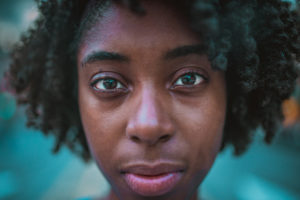Black Women Matter
 Photo by Jezael Melgoza on Unsplash
Photo by Jezael Melgoza on Unsplash When we work in social justice, specificity matters.
Social justice encompasses the disruption and replacement of many interlocking systems of oppression that include poverty, misogyny, violence, and racism. However, the practical application of social justice is anything but all-encompassing. When I hear someone say “we’ve got to fix poverty,” which I heard just this week, I understand that they mean well, but the statement is meaningless. When I talk about social justice, there are some who initially act like co-conspirators. They get excited. They talk about politics and how we need to do more. They’re engaged up until the moment I start talking about reparations, about work requirements and Medicaid, about the Hyde Amendment, and about asset limits. At that point I become too radical for polite conversation. And that’s because as we get into specifics, people (with privilege) start to see parts of their hard-earned all-American pie being taken from them.
But we have to get specific. As we get specific, we give texture to intersections, to how oppressions work together to marginalize individuals. As we get specific, we start talking about solutions. As we get specific, we normalize the implementation of corrections as social justice. Specifics get us closer to actual justice.
So how, specifically, do we do this? Talk in specifics and put your resources toward rectifying specific injustices. We can have more challenging but more worthwhile conversations about specifics, about violence against women, about the gag order on using words such as “transgender” and “science-based” in government agencies, and about people’s lived experiences. When people say misogyny is bad, ask them to get specific. Ask them how they’d fix it, and don’t let them settle for “I don’t know.” We do know. Justice requires a redistribution of resources and, often, these are resources that we’ve been encouraged and conditioned not to give up by white supremacy and neoliberalism. We must devote resources to people, organizations, and movements that can do the work better and have lived the particulars of the oppression we want to change.
Here at the American Humanist Association, we are continuing to work on our specifics and channeling our resources to organizations and people who are better situated to do the work. That is why we will be at the March for Black Women on Saturday, September 29 here in Washington, DC. Please join us on the corner of 7th Street SW and Jefferson Drive SW at 9 a.m. As co-sponsors for the march, we sign onto the following—necessarily specific—demands put forth by the organizers and hope you will join us as we create the change we want to see in the world.
We Demand:
- Full reauthorization of the Violence Against Women Act set to expire on September 30, 2018.
- That our political hopefuls center [the narratives of Black women] and increase their focus on intersectional women’s concerns like poverty, the lack of access to affordable housing, their full reproductive rights, immigration protections, and more access to resources to develop culturally specific practices that equally center the most vulnerable.
- Removal of the almost-forgotten gag order that forbids advocacy- and prevention-focused agencies from using the following words: “transgender,” “fetus,” “vulnerable,” “science-based,” “evidence-based,” “diversity,” and “entitlement,” because it promotes the erasure of what we face and escalates the threat of violence.
- Place all gender-violence and other so-called private matters traditionally relegated to private domains into the arena of public political debates as part and parcel to this critical moment.
- Given our contributions to this nation since its founding and to the communities within it, place our lives as central to contemporary political agendas. As we face VAWA reauthorization, end the practice of leaving women out of conversations, especially those of us in Black communities who make it our life’s work to struggle humbly and diligently, putting our whole selves on the line to address sexual exploitation and assault, and on a daily basis come face-to-face with rape survivors and at times their harm-doers. None of our stories should be forgotten or erased. We are “calling-in” community to delve further within our own individual and social experiences and unearth what the historical and contemporary truths are about gender violence, resistance, and persistence by Black women. Honor the past that is ever present. Honor what it takes for survivors of our current systems to take flight to freedom.
